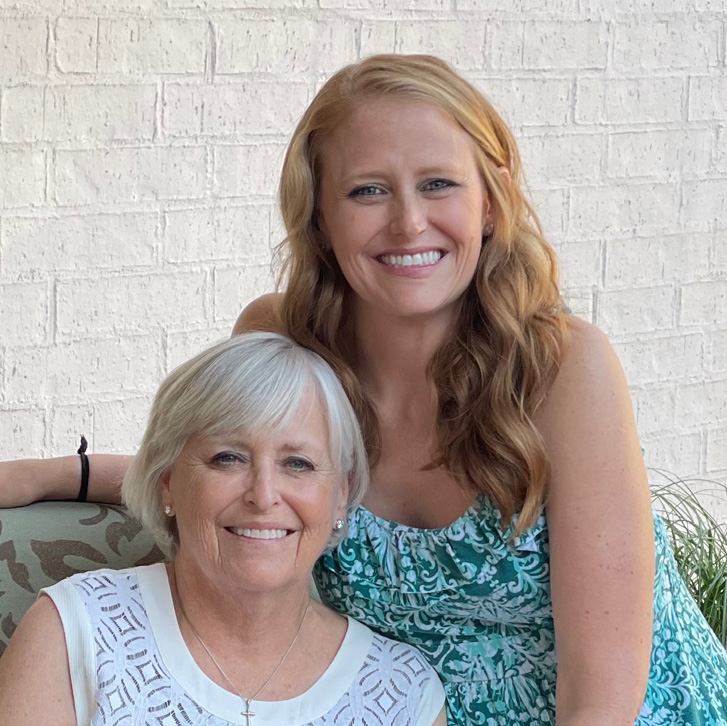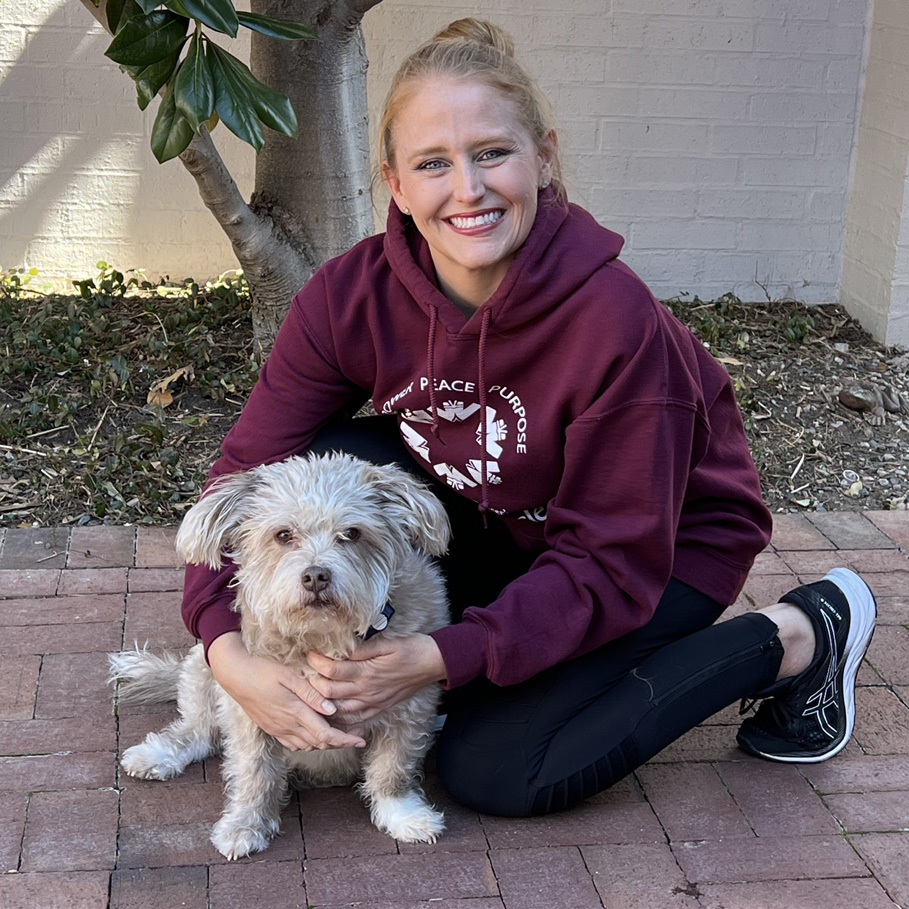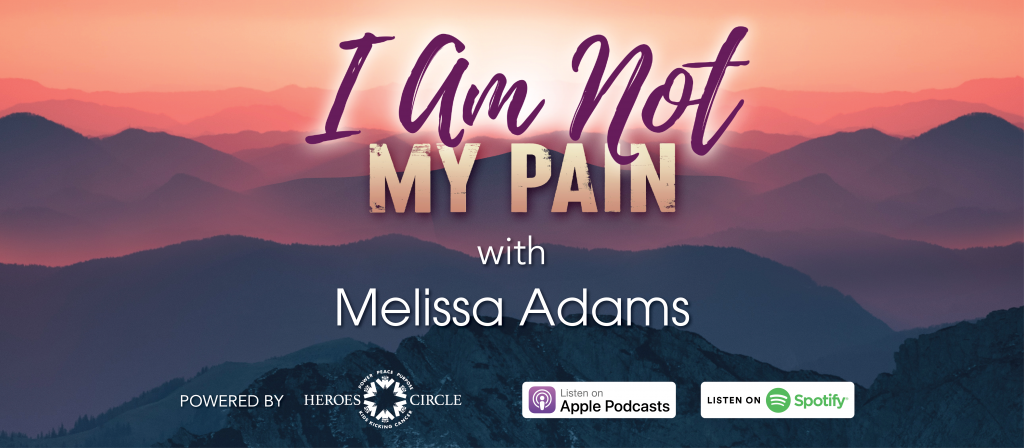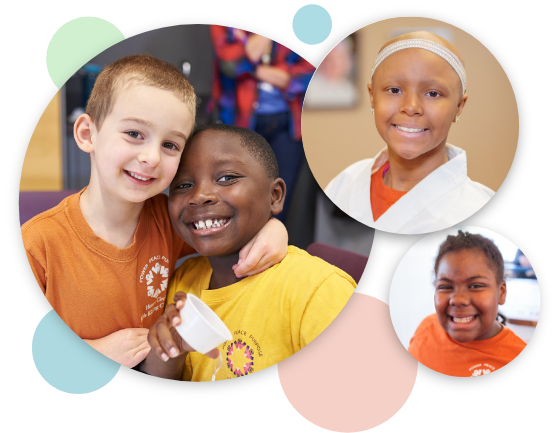
Melissa Adams could put on a great “game face.” Many people in her social circle didn’t realize—or did not believe—that she suffered daily from chronic headaches and neck pain. Melissa got through her day in small chunks, often only functional for 1 to 2 hours a day before pain would derail her, leaving her bedridden and unable to do much of anything.
Life had not always been this way. Melissa had been a typical college student, “Having the time of my life.” Then, at 19, she started having terrible headaches. People told her it must be stress. Soon, she started falling down and losing strength in her arms and legs. She had an MRI and received an unusual diagnosis: Melissa had Arnold Chiari Brain Malformation. A condition that was rare at the time, Melissa ended up leaving school to have a surgery. Initially, she felt she was doing better, and eager to return to school after missing a semester, she returned to campus. One day, Melissa leaned over and something “ripped,” initiating sharp shooting headaches in her forehead. These pains were intense every other day. Melissa left school a second time. Back home, she spent a year and half visiting doctors and neurosurgeons, ultimately ending up with two brain and neck surgeries, the last one being a cervical fusion.
From a technical perspective, the surgeries “fixed” Melissa’s condition. “I’m okay, nothing’s going to kill me,” says Melissa, “But the pain was just there, persistent.” Surgery had not resolved her pain, which continued around the clock, so intense that it sometimes landed her in the ER. Life became a revolving door of doctors’ appointments, medicines, and shots. “I did it all,” she says. “I spent about a decade, treatment after treatment, holding onto that hope…that the next treatment was just going to magically get rid of it.” She tried returning to school, but headaches prevented her from completing college. Melissa fell into a vicious cycle of despair and isolation.
Then Melissa met Rabbi Elimelech Goldberg, a man affectionately known as “Rabbi G”.
Melissa, a Texan, was in Michigan visiting her grandfather when her mother, through a friend, introduced her to Rabbi G. Rabbi Goldberg is the founder of the Heroes Circle, a healing and wellness initiative inspired by the children of Kids Kicking Cancer. When her mother first asked Melissa if she’d like to meet with him, Melissa was entirely unfamiliar with meditation, and thought of Rabbi G as a man who worked with kids with cancer. She wasn’t quite sure what he might have to offer her. But Melissa was desperate for some help.
She met with Rabbi G, whom she describes as “Such a figure, and has such a presence of calmness and kindness.” Rabbi G explained how pain is perceived in the brain, and how chronic pain is perceived in the brain. Although Melissa returned to Texas, they “met” virtually every Sunday for over a decade, with Rabbi G introducing her to meditations, finding out what worked and didn’t work with her.
Rabbi G’s belief in Melissa buoyed her up even as she held onto some skepticism. “I thought ‘Yeah, right, meditation,’” says Melissa of her own doubts. But Rabbi G persisted, and saw an overall purpose for Melissa, something beyond relieving her pain: He would teach her, and she would teach the world. With Rabbi G’s faith in her, Melissa remained consistent, and over time, she noticed subtle differences. Once, she noticed that her meditation work took her pain from a 9 to an 8. This was a small but notable shift, so Melissa started approaching meditation more wholeheartedly, and she was becoming more aware of the incremental differences in things she was doing. She was slowly gaining more of her life back; whereas once she couldn’t function beyond 1 or 2 hours per day, she began functioning for 4 or 5 hours. Melissa was also undergoing a treatment known as transcranial direct stimulation (tDCS) aimed at lowering her pain message by disrupting and changing the neural pattern of pain in her brain. With the help of Rabbi G, Melissa was able to apply meditation to this process that allowed her brain to accept changes. Brain-mapping later showed observable differences in how pain “lit up” in her brain—until then, no one could “see” the very real pain Melissa felt, and Melissa credits this effectiveness to meditation.


But Melissa was not just gaining back time or relief from pain. Melissa was regaining her sense of self. For so much of her life, Melissa felt defined by her pain. Now, she was experiencing a paradigm shift: seeing her pain as something separate from her. Melissa started thinking, “The pain is not who I am…I can do more than this.” She wondered about her greater purpose, as she thought “I want to give back to this organization that has given me so much.”
Melissa began volunteering with the Heroes Circle, nervous at first that she wouldn’t be allowed; she was in no way a karate sensei. Yet she was welcomed wholeheartedly. She completed training for the Heroes Circle, focusing on how to approach meditations with children and older teenagers. (Melissa notes that while she went through the training, this did not include the karate portion, unlike the Martial Arts Instructors, who are Black Belts.) The children Melissa worked with inspired her. Faced with battles greater than her own—cancer, chemotherapy, life-threatening illnesses—they remained positive and certain of their abilities. “Children have faith in themselves,” she says. “They know they are powerful beings.”
Melissa was surprised when the Heroes Circle offered her a position as a Therapeutic Insights and Research Analyst. Rabbi G asked Melissa to research what could be offered to the pain community. She is now working with the Martial Arts Instructors to create playlists on YouTube that offer science-based therapy to children and adults outside of the organization, including adults in pain. And this spring, she is set to launch her first podcast, “I Am Not My Pain,” sponsored by the Heroes Circle. “When you have chronic pain and illness,” says Melissa, “people and society don’t really understand what they can’t see.” Her podcast will provide a platform and resource for the millions of other people suffering from chronic pain. “I really want to give these people a voice, to tell their story, and establish what the issues are that they face.” Melissa says these issues go beyond the pain itself, to the ways chronic pain elicits judgment from others, and can affect relationships and parenting. Knowing how isolating chronic pain can feel, she wants others to feel less alone, and take away stigma and shame.

As Melissa embarks on this next journey in her life, the mantra that children repeat in the Heroes Circle is something that is now personal to her: Power, Peace, Purpose. “Power is choosing to respond to pain and darkness with light.” She has also found peace in accepting “I am not my pain”. Ultimately, as with other Heroes Circle members, Melissa has found her purpose: to teach the world. “When you give yourself a purpose, you have more reason to live and less reason to just survive,” she says. “I’ve definitely found that in my life, and these kids have given it to me.”
